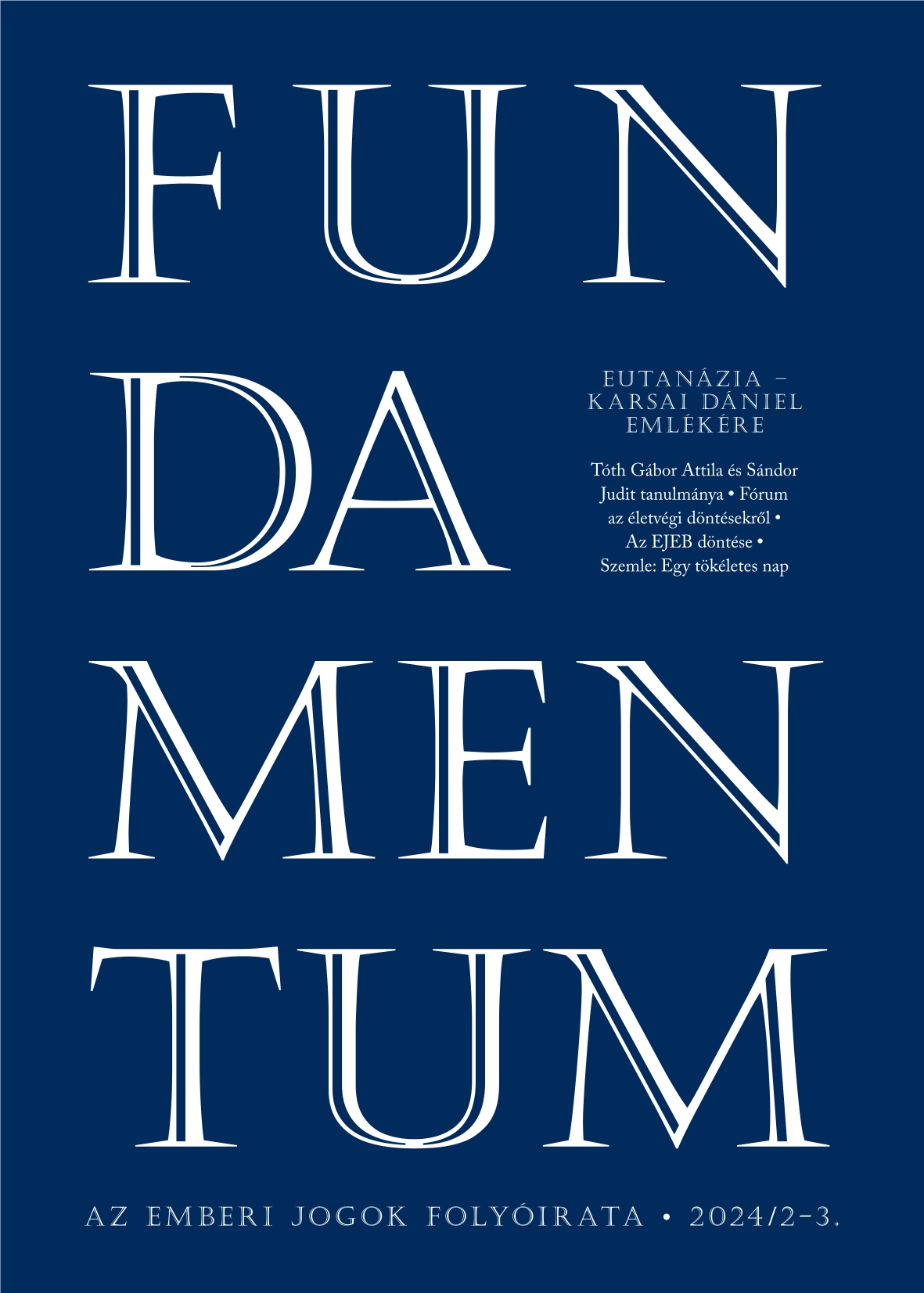Az életvégi önrendelkezés és a láthatatlan vasfüggöny
DOI:
https://doi.org/10.70538/fundamentum.2024.2-3.3Keywords:
palliatív ellátás, hospice, eutanázia, életvégi döntés, covid-19Abstract
Judit Sándor’s article seeks to answer the question of how human dignity can be maintained and protected until the end of life, recognising and accepting that, while death is part of every human destiny, the way in which we die and experience it can be very different. Why is it that in some countries end-of-life decisions are seen as a natural part of patients’ rights, while in others the last stage of life remains taboo, and the dignity of the person who is dying is seen as the least important, rather than the vulnerable patient as a group, or the patient’s fate is decided over his or her shoulder, according to external considerations and interests? What are the prerequisites for a stronger respect for the right to self-determination in end-of-life decisions? If the will of the deceased is sacred, why not the self-determination of the incurable patient? Is post-mortem self-determination of property more important than the patient’s wishes in the last stage of life? In Hungary, there has long been a debate about death with dignity, and opinion polls at different times have shown that people want to decide for themselves whether or not to have medical treatment at the end of life. The polls also show that many people also want active help to hasten death if suffering cannot be alleviated. Yet, when it comes to legislation in Europe, coyness, caution or just plain avoidance prevails, especially in the former socialist countries.


